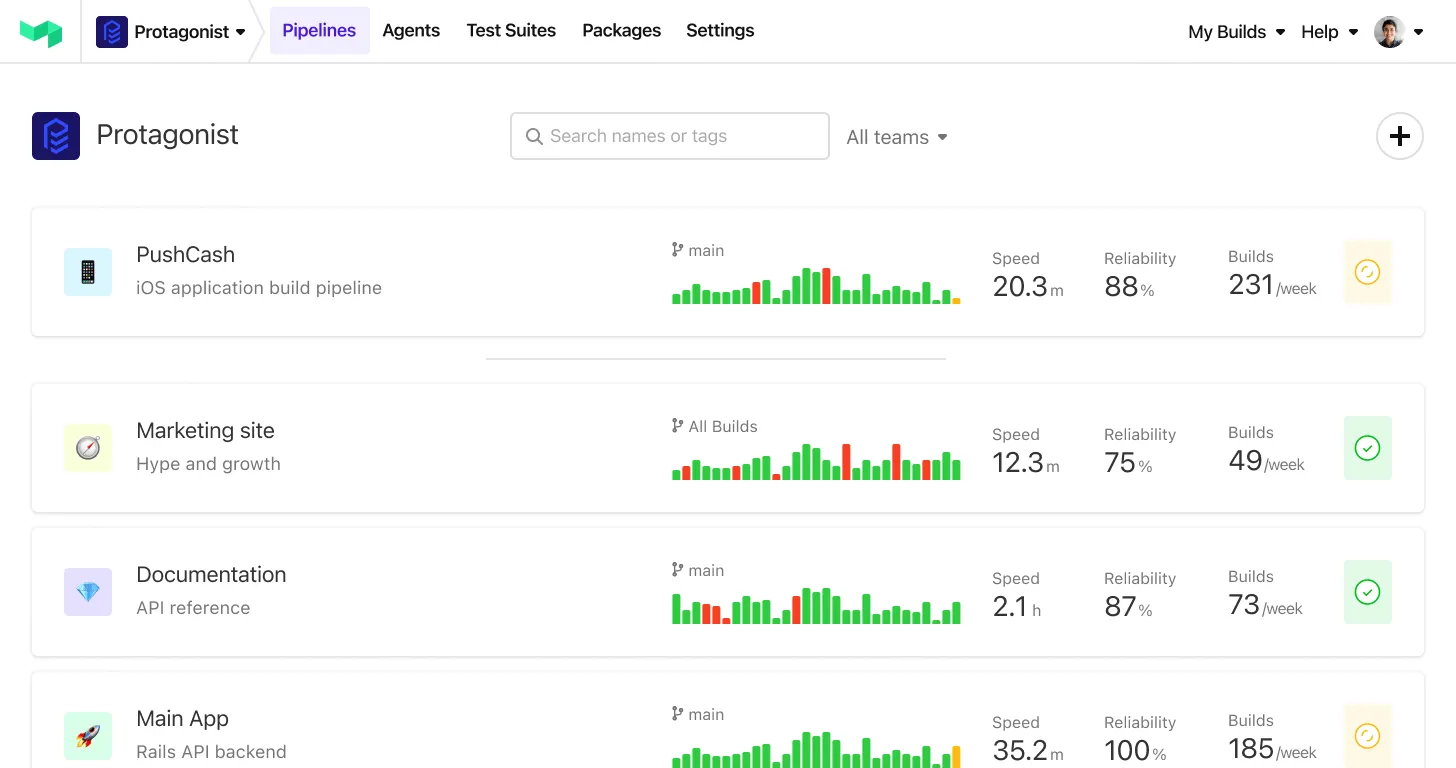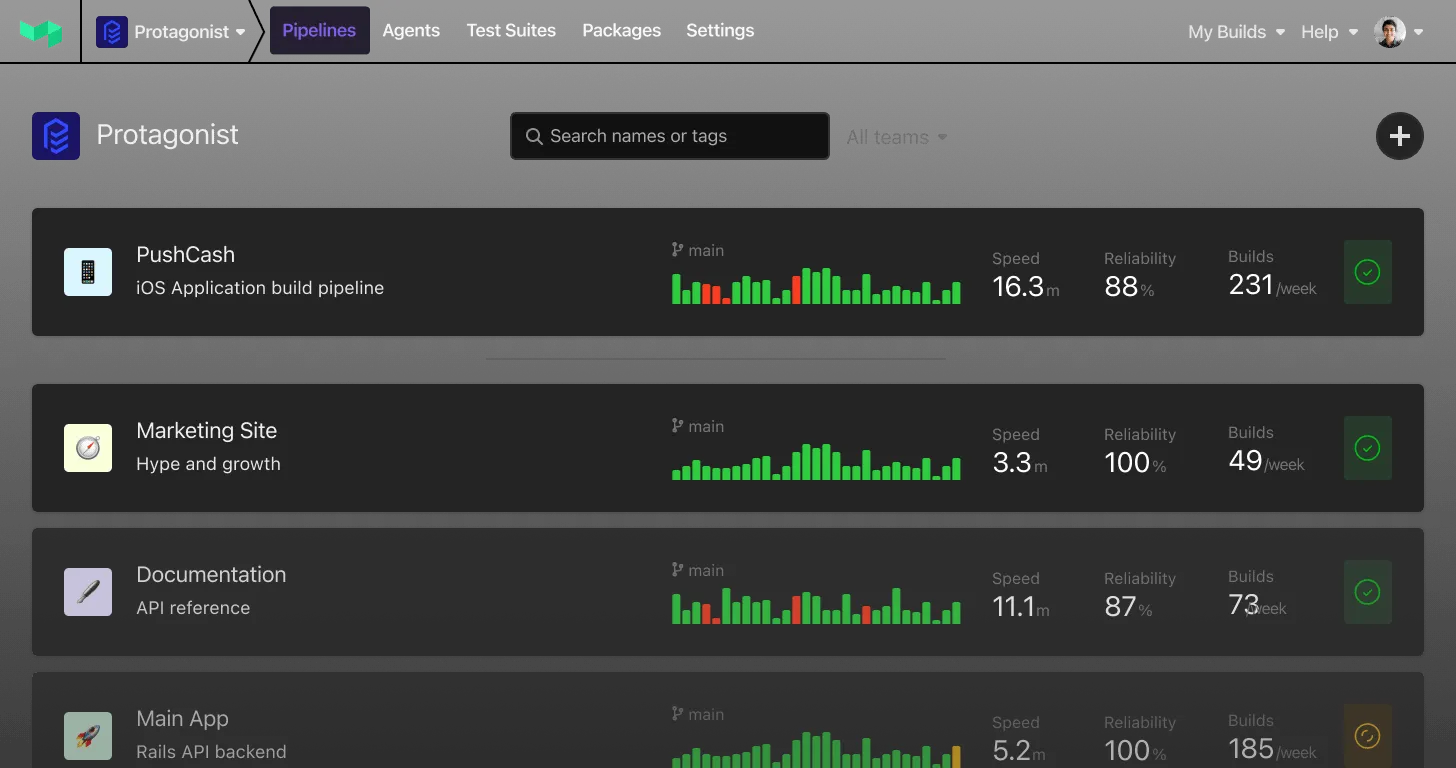Performance and Speed
Pipeline execution speed and resource efficiency are crucial factors in CI/CD platform selection, directly impacting developer productivity and deployment frequency. This section examines real-world performance metrics, queue times, and optimization capabilities of both platforms.
CircleCI
Users have reported CircleCI demonstrates 40.29% faster pipeline execution compared to GitHub Actions' default runners, maintaining a 2.09% advantage even against more powerful GitHub runners. Under high-volume concurrent workloads, CircleCI maintains queue times under 30 seconds.
Github Actions
GitHub Actions shows median queue times exceeding 153 seconds (maximum 22+ minutes) during peak usage periods, representing 90.13% more queuing than CircleCI. However, GitHub-hosted runners provide fast provisioning with pre-installed tools and the platform's global CDN ensures rapid artifact distribution.
Pricing and Cost Structure
Understanding the total cost of ownership is essential for budget planning and long-term platform sustainability. Both platforms employ different pricing models that affect predictability and scalability costs.
CircleCI
CircleCI provides 30,000 credits monthly (~3,000 build minutes) with more complex credit-based pricing starting at $15/month for 5 users. Other costs include Docker Layer Caching ($0.12/job), IP ranges, storage overages, and network egress ($0.252/GB), making total cost of ownership difficult to predict.
Github Actions
GitHub Actions offers unlimited compute for public repositories and 2,000 minutes/month for private repos in the free tier, with transparent pay-per-minute pricing ranging from $0.008 (Linux) to $0.08 (macOS). The straightforward model proves more predictable for budgeting, with no hidden fees for standard features.
Ease of Use and Learning Curve
The initial setup experience and ongoing maintenance requirements significantly impact team adoption and productivity. Platform accessibility affects how quickly teams can implement CI/CD workflows and troubleshoot issues.
CircleCI
CircleCI's single config.yml file offers more sophisticated configuration options but requires steeper learning investment. The platform provides superior debugging capabilities through SSH access to build environments, enabling real-time troubleshooting that GitHub Actions lacks.
Github Actions
GitHub Actions requires zero additional setup for GitHub repositories with familiar UI integration and extensive starter templates. The platform's marketplace provides pre-built actions for common tasks, while the declarative YAML syntax remains accessible to developers new to CI/CD.
Integration Ecosystem
The breadth and quality of third-party integrations determine how well a CI/CD platform fits into existing development workflows and toolchains. Both platforms offer extensive integration options with different strengths.
CircleCI
CircleCI provides 3000+ orbs supporting GitHub, GitLab, and Bitbucket with more mature patterns for complex multi-cloud integrations. The orbs system offers pre-configured best practices for common tools and services, reducing configuration complexity. CircleCI's platform-agnostic approach enables consistent CI/CD across diverse VCS environments, making it ideal for organizations with mixed repository hosting strategies.
Github Actions
GitHub Actions offers 10,000+ actions in its marketplace with deep GitHub ecosystem integration, covering everything from deployment automation to security scanning. The platform works exclusively with GitHub repositories but provides unmatched integration depth with GitHub features like pull requests, issues, releases, and project boards.
Enterprise Features
Enterprise-grade capabilities are essential for large organizations requiring advanced security, compliance, and scalability features. This section examines how each platform addresses enterprise requirements including audit trails, deployment options, and large-scale performance.
CircleCI
CircleCI offers server deployment options for on-premises requirements, custom resource classes including GPU support for ML/AI workloads, private orb registries, and achieved first-to-market FedRAMP authorization.
Github Actions
GitHub Actions provides advanced audit logging, secret protection through encrypted environments, Dependabot integration for automated security updates, and organization-level security policies.



